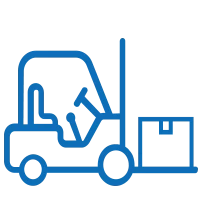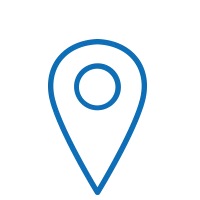October 2020
Putting customers at the centre: how Yale develops tailored solutions
‘People. Products. Productivity’. For Yale Europe Materials Handling, this philosophy is integral to how it does business. Rather than a one-size-fits-all approach, Yale prides itself on providing its customers with tailored solutions to suit their individual needs, helping them to drive forward efficiency and productivity. In order to reach the ideal state for a new prospect, Yale industry experts use the New Product Blueprinting methodology to uncover challenges customers face, and guide them towards the best solution.
Yale believes that an understanding of its customer’s industry helps its experts to seek out effective strategies and products for business operations. This is a key component to the New Product Blueprinting process, as Yale industry experts are able to combine a customer’s anecdotal evidence with their own knowledge of the specific industry to suggest a range of Yale materials handling products to improve their operations.
In-depth industry insight
“At the start of the New Product Blueprinting process, it is important to understand customer challenges and what the future of their business looks like before we begin to discuss what YaleⓇ products could help them,” explained Robert O’Donoghue, Solutions Director, EMEA. “Our Solutions Department focuses on deeply understanding the applications of each industry and ensuring that customer needs are optimised.”
Yale segments the market into ten different industries: food, beverage, chemical, automotive, paper, wood, logistics, retail, metal and construction.
“These ten industries make up about 90% of the materials handling market. Our role as Industry Managers is to use our knowledge of those applications and put the customer at the centre of it, to make sure that we’re developing products and solutions that the application or industry actually needs,” said Robert.
On the journey to discovery
“New Product Blueprinting is a structured open process. We listen to various stakeholders within a business to receive a holistic view of their operations, which enables us to develop ways that we can assist with improving their procedures,” added Robert.
This takes place in a Discovery Interview, giving the customer the opportunity to analyse the successes, as well as operational struggles, of their business. Originally developed by the AIM Institute, the Discovery Interview consists of five key stages and often requires only a few hours’ investment to lay the foundations of a materials handling solution.
“Four to five different key stakeholders from the customer attend the Discovery Interview with Yale industry experts. It’s a really transparent process, which ensures all parties understand every area of focus. In the meeting, everything is projected onto the screen so everyone can see what is being noted at all times, and corrections can be made there and then to avoid misunderstandings,” explained Robert.
A step-by-step process to success
The first stage of the interview is known as Current State. As well as hearing directly from the customers, Yale industry experts often also attend the site and survey the working environment.
“We focus on the customer’s application and ask the stakeholders to describe how operations are running. After this, we move to the next stage to uncover the challenges. Questions are asked, such as ‘what is giving the customer issues and what keeps them awake at night?’ Even with a small throwaway statement we will try to make it more specific, and really dig deeper into what the true problem may be. This may be something the different stakeholders are unaware of, or potentially disagree on. The discussion doesn’t have to be related to material handling processes only, it needs to centre on what matters to the customer at that time,” said Robert.
Defining the ideal solution
The third phase of the Discovery Interview looks at Ideal States. “This is where we begin to talk about what utopia would look like to the stakeholders, and what it would achieve for their business. There are no bad ideas, and we try to get creative but importantly we always come back to the question – why would that make a difference to you?”
“Triggered Ideas is the fourth step of the interview focusing on specific areas and processes within the operation to make sure we haven’t overlooked any area. We ask ourselves questions like ‘can something be done more quickly or more efficiently?’ for example.”
Bringing the findings together
The final stage is Top Picks. “This is about the customer narrowing down what they want Yale to focus on. It’s really important because the stakeholders review the key challenges and ideal states that the session has uncovered, and inform us about the main things they want us to explore in more detail,” explained Robert.
Once the Discovery Interview is concluded, Yale experts feed the information back to the Yale engineering department. A recommendation report is sent to the customer within a month of the interview, which gives suggestions for short, medium, and long term best practices. Yale industry experts return to visit the customer with concepts for their specific solution.
Robert concluded, “Discovery Interviews are a great opportunity for customers to reflect on their own business, which is something a lot of firms don’t have the time to do. You’re bringing together the purchasing manager, the logistics manager, HR and so on. Seeing each other’s key wants and needs up-close can be surprisingly informative. Not everyone within a business operation faces the same challenges as their colleagues, and the collaboration from across the business can create a tailored solution that benefits everyone.”


